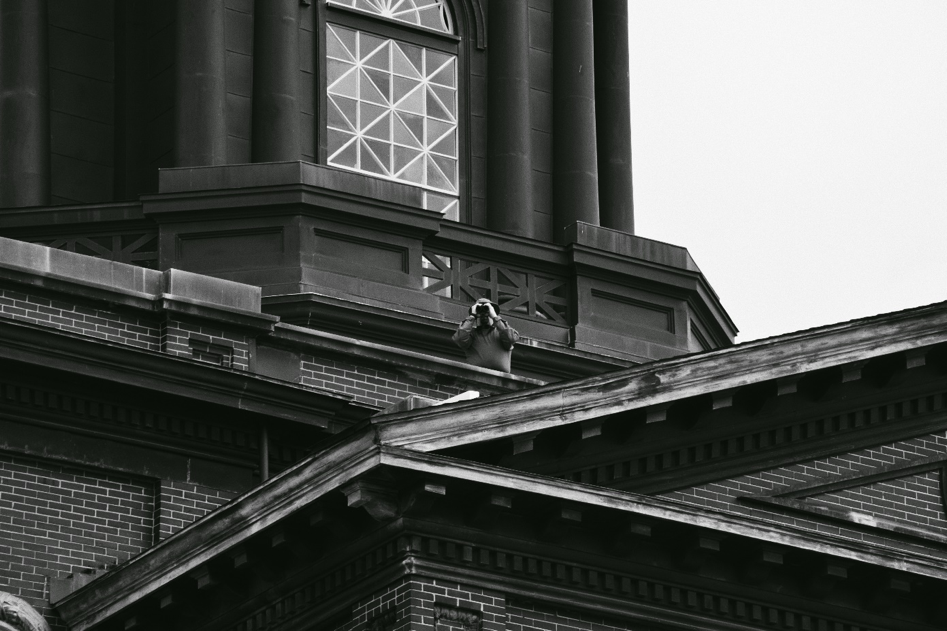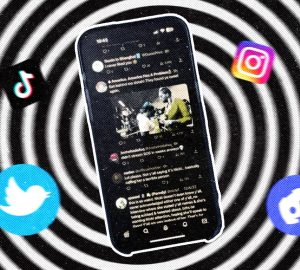
I’m an incredibly paranoid individual. One of my many general fears is that the government is listening to/recording all of my conversations and videotaping my facial expressions through the front-facing cameras on phones and computers.
There are a couple of different things that I’m afraid they might do with that footage and audio — even though I have no way to explain why they would want to take it in the first place, or how they would pull that off.
Despite this, my fear of being watched means I can’t shake the gut feeling some unknown clandestine entity might use all of the information they’ve potentially collected to create a believable android replica of me. Then replace the real me after I’m kidnapped in my sleep and use my body for strange invasive medical experiments at an underground facility in an undisclosed location.
Either that or I expect them to use all of the voice recordings and images of my facial expressions to do some kind of deep-fake video of me plotting an elaborate domestic terrorist attack and then blackmail me into taking part in their Satanic rituals.
While my fears are slightly more exaggerated than the average person, I think the fear of having your identity, or other sensitive information, stolen is universal. With technology as prevalent as it is in daily life, it isn’t difficult to imagine that someone could get their hands on your debit card info or your social security number and use it for malicious purposes.
The gatekeeper to almost all of this sensitive material is something most people use every day: passwords. Passwords are the sequence of letters, numbers
Because so much of what we do on a daily basis is protected by passwords, it becomes harder and harder to keep track of all of them. To remedy this, there are services that manage your passwords for you, but I worry about how easily compromised those services are.
Additionally, if I end up losing the password to my password manager, I can’t access anything. And, if someone gets ahold of the password to my password manager then they have access to my bank account, Hulu subscription, Facebook profile and most importantly, my premium pornography membership, all in one shot.
I like to create incredibly elaborate passwords using as many random characters and numbers as possible so that way it should be more difficult for someone to guess even if they’re using an algorithm.
I’m also afraid of using the same password for every account because I don’t want someone to be able to get into my bank account through my email or anything like that. So, I make elaborate and weird passwords that are hard to remember. But, at the same time, I’m afraid to write them down on any electronic device because I’m worried that someone is going to be able to look at my screen through some kind of spyware program and get ahold of it so they can steal my money and hurt my family.
The alternative at that point is to write them down on a piece of paper. But, that is inconvenient too, mostly because I end up forgetting exactly where I put the list.
I’m also wary of keeping them all written down in the same place because I don’t want to run into the same problem as the password manager where someone might either discover it, or I’ll just lose it and then lose access to everything altogether.
In response to all of this, the method that I’ve used for a while to combat these problems is to reset my password any time I log into anything. I feel like I can never actually forget my password if I never remember it in the first place. Plus, this way I’m making it more difficult for would-be hackers because I’m constantly changing it to more ridiculous and convolud things each time.
The saturation of technology in everyday life plays directly into the general fear of being watched or constantly monitored. The Panopticon was a prison design that essentially made prisoners feel as though they were being watched at all times even though it was impossible for a single guard to watch everyone at once. It was a psychological technique used to instill a self-policing mindset in the prisoners out of the fear of
Currently, we are in an informational or digital Panopticon because there is a sense that someone or something is constantly monitoring our activity and as a result, we police ourselves in response to that fear. It is the negative reinforcement version of the idea that you should always be on your best behavior even when no one is looking.
Big Data is tracking all of your online footprints to condense into marketing strategies and better utilize their algorithms to put products you are more likely to buy in places you are more likely to see.
At this heightened level of technological integration, we cannot even put our faith in companies that work towards protecting us from identity theft or hackers, like password managers or VPN services. This is because these services are operating within a marketing ecosystem that deliberately plays off of the fears of people like me. People who are so desperately afraid of the infinite possibilities of malicious forces out to get them hiding in the shadows that they will pay — probably more than necessary — to make themselves feel safe.
The interesting and terrifying aspect of this fear of being watched is that on some level it is warranted and justifiable. However, because it is so ambiguous and indeterminable, it is also excessive and impractical. This means that people need to remain vigilant and avoid egregious breaches of their privacy while also managing to avoid falling into an unverifiable conspiracy spiral.
While it might be absurd to assume that I am going to be kidnapped in the night and medically tortured at a government black site, the digital P



























